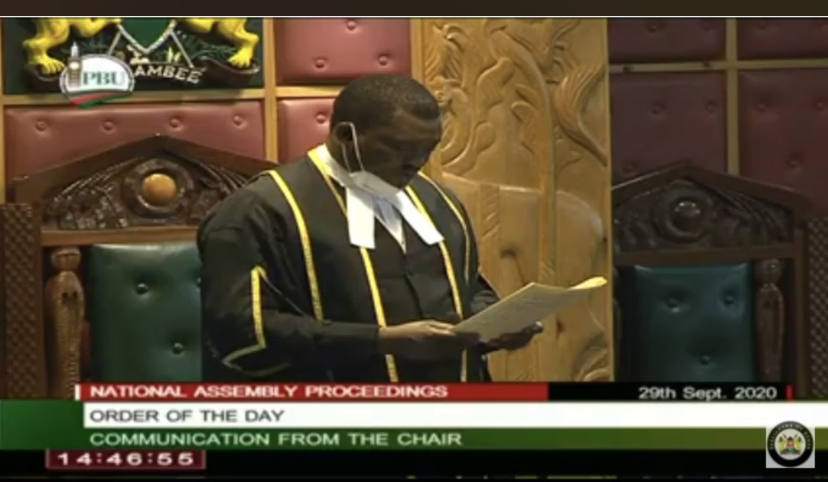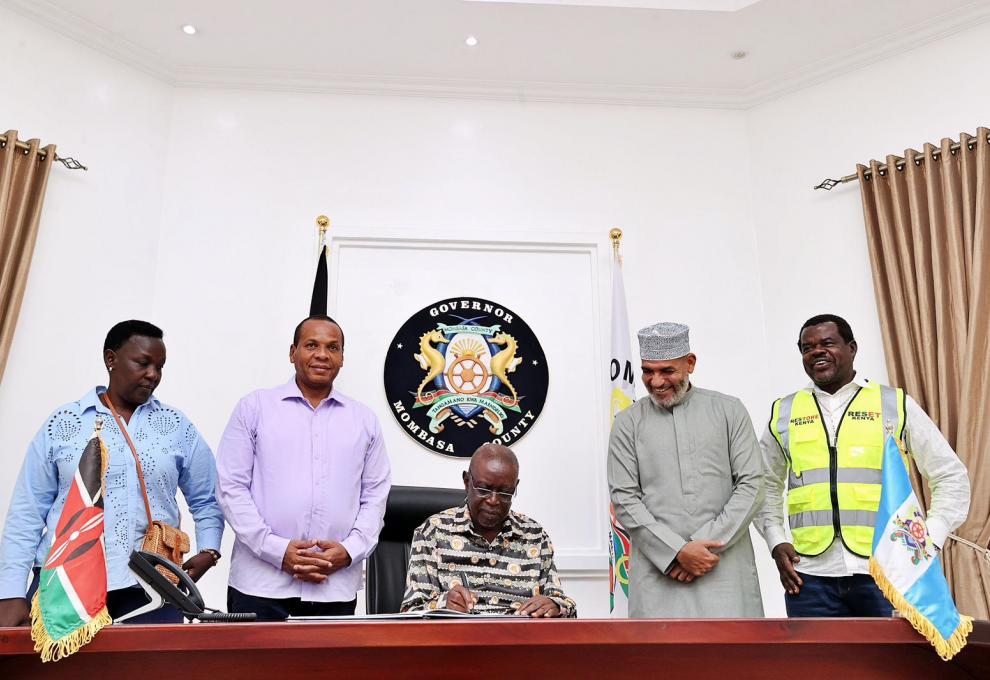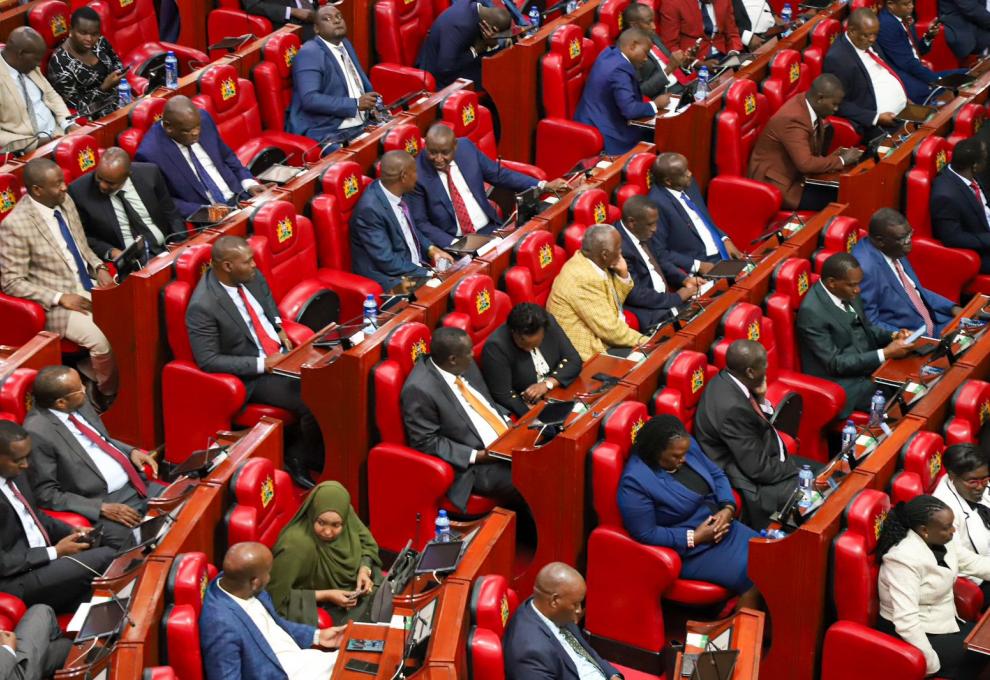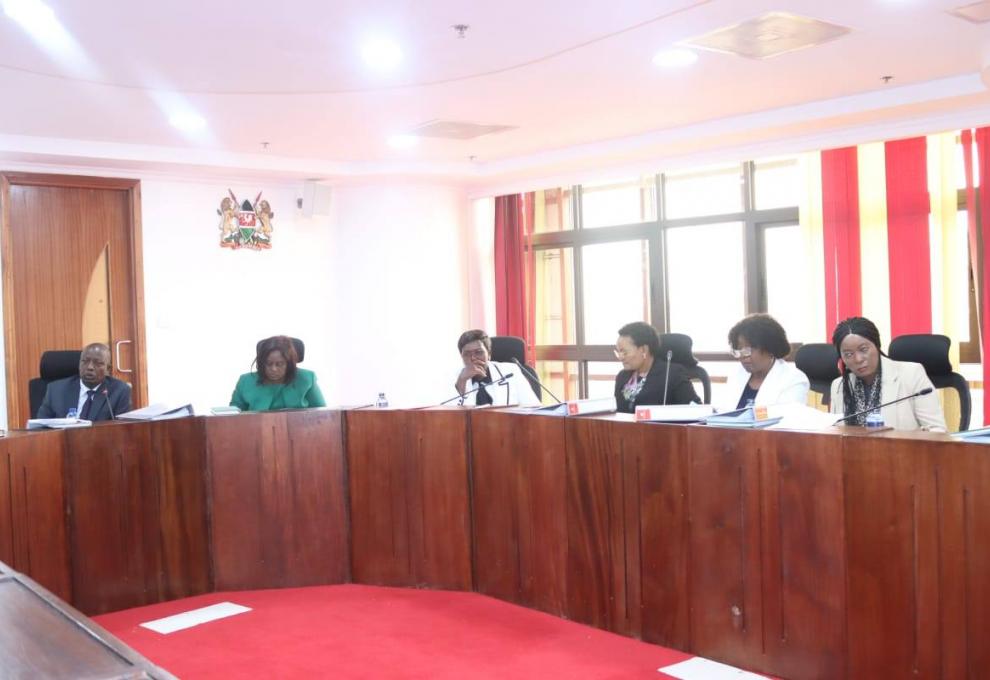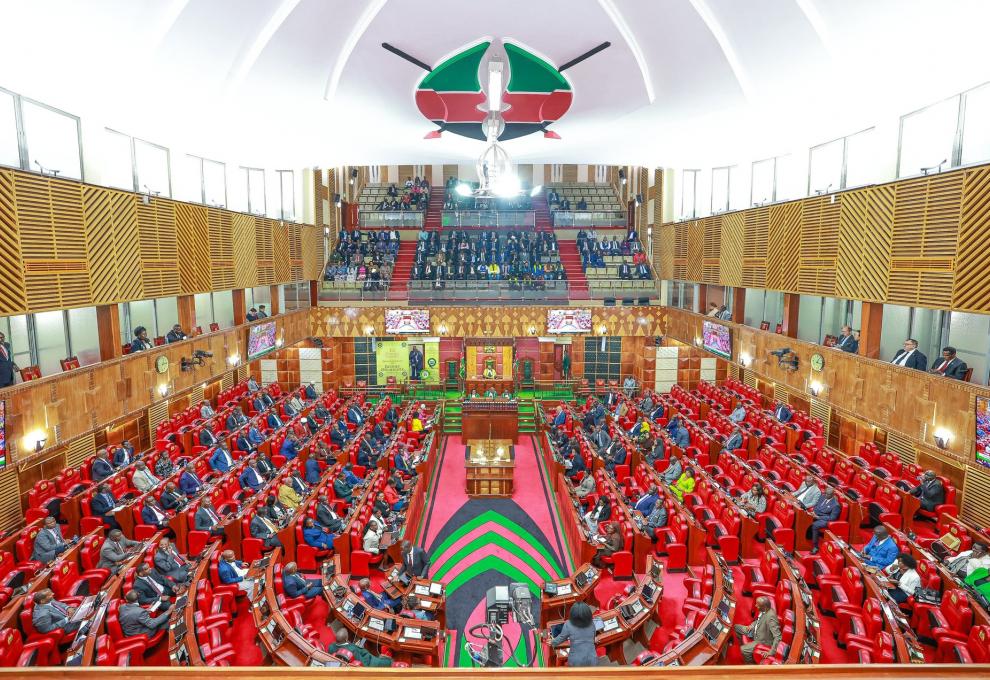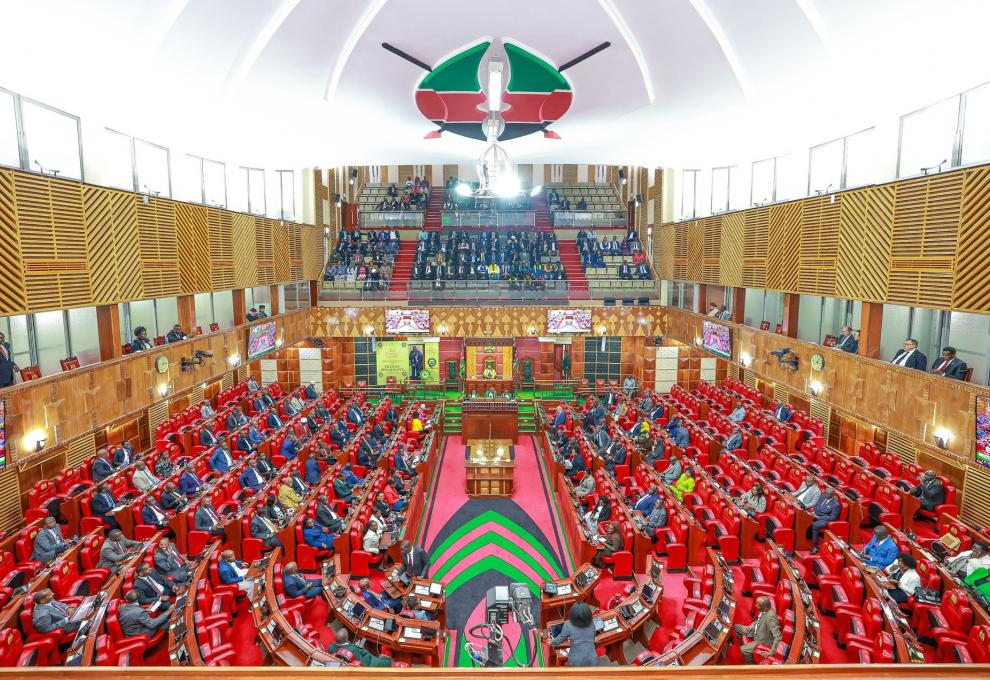National Assembly to Appeal High Court Ruling on Constitutional Petition
The National Assembly will appeal the recent court ruling which nullified 23 Acts passed by the House without referring them to the Senate.
This decision by the House Business Committee was relayed to the House this afternoon by the Speaker of the National Assembly, Hon. Justin Muturi through a Communication.
"In view of the foregoing, the House Business Committee has resolved that the National Assembly does appeal the decision of the High Court in Constitutional Petition No.284 of 2019, as consolidated with Constitutional Petition No. 353 of 2019", Speaker Muturi said.
The Speaker further informed the House which has just resumed from a two-week recess, that the House Business Committee had made a decision that no legislative business would be undertaken by the House whether from the National Assembly or the Senate, pending a way forward on the decision contained in the High Court Judgement, while seeking stay or setting aside of the Judgement by the Court of Appeal.
The Speaker also pointed out that the House Business Committee; the apex Committee that is responsible for scheduling the agenda of the House, had noted in grave concern that the court erred, misdirected and misapplied the Constitution.
The Committee found that the High court failed to consider the architecture design of the bicameral Parliamentary system under the Constitution.
The Committee further observed that the judgement had effectively curtailed the mandate of the House under Article (109) (3) of the Constitution by requiring that any Bill not concerning County Governments must be considered by the Senate too. They also submitted that the ruling had further muted the provisions of Article 114 of the Constitution regarding money bills.
Some of the Key legislations that the Courts challenged include: the Computer Misuse and Cybercrime Act, 2018, the Equalization Fund Appropriations Act, 2018, the Finance Act, 2018, the Appropriations Act,No.7, 2018, and the Appropriations Act ,2019.
While expressing their reactions over the ruling, Members took issue with the judges who made the ruling, accusing them of making attempts to curtail their mandate. They noted that the ruling poses grave implications on government taxation measures, government International commitments, reforms, and policy decisions taken in relation to various Acts of Parliament.
Justices Jairus Ngaah, Anthony Ndung'u and Teresia Matheka while sitting at the High Court (Milimani Law Courts) last week, found that Speaker Muturi had not sought the concurrence of the Senate Speaker, Sen. Kenneth Lusaka as to whether the disputed Acts touched on County Interests during their consideration. The courts had however suspended the effect of this ruling for a period of 9 months, to allow the National Assembly to comply with the provisions of Article 110 of the Constitution and regularise these Acts.
The Constitution clearly sets out the mandate of the two Houses of Parliament, with Article 109 of the Constitution mandating the National Assembly to enact bills not concerning County Governments without the participation of the Senate.
Earlier this year during a National Assembly Leadership Forum, the Leader of the Majority Party, Hon. (Dr.) Amos Kimunya had proposed that the two Houses should find a way of co-sponsoring bills as a means to mitigating the sibling rivalry that has characterised the bicameral Parliament since inception.
He had further submitted that there is need to manoeuvre the intricacies that come with the manner in which Article 109 (5) of the Constitution is couched to allow the two Houses to execute their varied mandate effectively.



